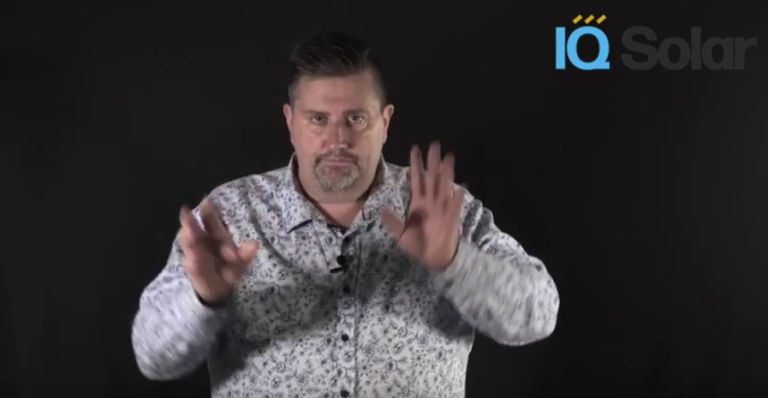Reasons not to choose the cheapest solar systems

I want to talk about why people buy cheap solar systems in Sydney. Solar can be complicated. It certainly has lots of details. It’s not intuitive. And in my experience, when people get confused, they revert to the one thing that they can understand, and that is the price. So people talk about panels and these ones are from here, and this is the efficiency, and all sorts of written things about the inverter and so forth. And if that’s too complicated, people will just look at the price and go, well, that system was $3,000, and your system is $5,000. So I think I’ll get that one. And I can understand that in the absence of anything else, price is one simple way to make a distinction or make a choice.
The problem is… I’ll be honest. Solar is very, very competitive. So basically, when one company has a $3,000 system and another company has a $5,000 system, it’s got nothing to do with profit in that. It comes down to the choice of materials, the quality of the installation, the company that is offering it to you, types of warranties that they’re offering. It really is a case of you get what you pay for. So you think you are getting a bargain for a $3,000 system, but what you’re buying is a bundle of goods that may work for you and they may not.
The same as any product, whether it’s cameras or cars or coffee machines or other things that start with C. That wasn’t intentional. But basically, you get what you pay for. For a six kilowatt system in Sydney, for example, it’s possible to pay less than $3,000 through some companies. It’s also possible to pay 9, and the $9,000 system really is a range rover of a system. You might be in phase with LG panels, for example. Now that doesn’t mean that that’s the right system for you. Somewhere in the middle, there will be a combination of products and design and so forth that suits you.
And my request to you is that you get enough of an education about solar, not for the sake of education, not just so you can be a walking encyclopedia, but that you learn enough about solar, how it works. And I don’t mean electrically, I mean what is happening with the power in your house and whether it’s being consumed or exported, so that you get to make an informed decision about what it is that you’re buying. Solar is not a massive purchase, at some were 5, 6, $7,000. It’s not huge, but it’s also not small.
The other thing is, you really don’t often buy solar twice. So you put it on, you want that system to last a couple of decades, and it should. If you buy the cheapest, it’s an absolute dice roll. So my request is, learn enough so that you can make an informed decision.
We can help you with that. So we’ve got lots of material on our website where we explain what solar does for you, what you could expect to save, what system size to have, etc. So have a look at that or talk to me. I’m also happy to talk about solar all day with anyone and help you make the right choice. So I’d like you to not focus just on the bottom line price. I would like you to make the right decision. And for that reason, let’s have a discussion about solar and how we can help you make the right decision. Thanks.
Recent Videos:
What is NOT buying solar costing you?
Reasons not to choose the cheapest solar systems
Mistakes people make when buying solar systems in Sydney
The trap of "interest free" money in solar power
10 facts about the STC solar 'rebate'
Why do people offer 6.6kW solar systems?
What is the solar rebate change from 2020 to 2021?
Why people promote 6.6kW systems?
What happens to a solar in a blackout?
What angle should solar panels be at?
To tilt or not to tilt solar panels?
Optimizing vs Maximizing system sizes
Made in China - is that an issue?
What an inverter does and types of inverter
How we analyse commercial solar?
How much of my power bill I can eliminate?
Do batteries make sense for your solar system?
What solar panels should you choose?
